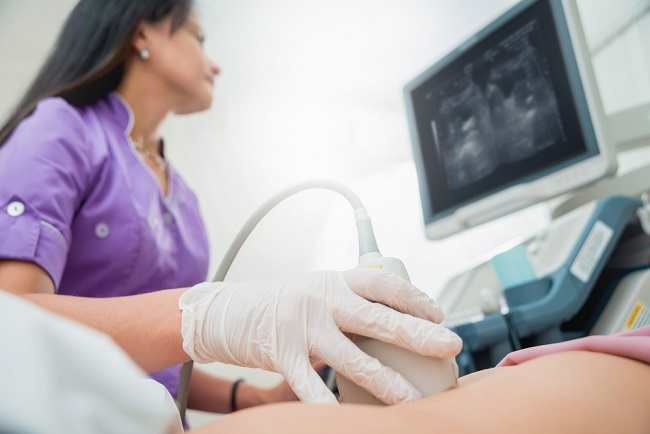Electrolytes are electrically charged minerals found in cells, tissues, and body fluids, including blood, urine, and sweat. There are many types of electrolytes with their respective functions. In order for all organs of the body to function properly, adequate intake of electrolytes is required.
Electrolytes function to support the activity of cells and body tissues, such as nerves and muscles. Electrolytes also play an important role in maintaining heart function and keeping the body's fluid levels balanced.

Electrolytes can be obtained from foods and beverages, such as fruit, vegetables, electrolyte drinks or isotonic drinks, infused water, mineral water, or certain supplements. Apart from food and drinks, electrolytes can also be given parenterally or through a vein, namely through an IV.
There are many types of electrolytes in the body, including potassium (potassium), magnesium, calcium, sodium (sodium), and chloride.
Different Types of Electrolytes in the Body and Their Benefits
The amount of electrolytes in the body is controlled by various hormones, especially those produced in the kidneys and adrenal glands. If there is an electrolyte balance disorder, either excess or deficiency, the function of the tissues and organs of the body will be disturbed.
The following are the various types of electrolytes in the body and their benefits:
1. Sodium
Sodium is needed by the body to maintain electrolyte balance, control fluids in the body, and regulate muscle contraction and nerve function. Normally, sodium levels in the blood range from 135–145 millimoles/liter (mmol/L).
Certain health problems can cause the body to have too much or too little sodium. Excess sodium (hypernatremia) usually results from severe dehydration, such as not drinking enough water, extreme dieting, or chronic diarrhea.
Meanwhile, sodium deficiency (hyponatremia) can be caused by consuming too much water, impaired kidney or liver function, heart failure, or abnormalities in the antidiuretic hormone which regulates the amount of body fluids.
2. Potassium
This electrolyte functions to regulate heart rhythm and pumps, maintain stable blood pressure, support nerve electrical activity, regulate muscle contraction and cell metabolism, and maintain bone health and electrolyte balance.
In the blood, the normal amount of potassium is in the range of 3.5–5 millimoles/liter (mmol/L). Potassium deficiency (hypokalemia) can be caused by diarrhea, dehydration, and side effects of diuretic medications.
Meanwhile, excess potassium (hyperkalemia) is usually caused by severe dehydration, kidney failure, acidosis, or low levels of the hormone cortisol in the body, for example due to Addison's disease.
3. Chloride
Chloride in the body functions to maintain the pH or acidity of the blood, the amount of body fluids, and the activity of the digestive tract. Normally, chloride levels in the body are 96–106 mmol/L.
Chloride deficiency (hypochloremia) can occur due to acute kidney failure, excessive sweating, eating disorders, impaired adrenal gland function, and cystic fibrosis. Meanwhile, excess chloride (hyperchloremia) occurs due to severe dehydration, parathyroid gland disorders, kidney failure, or side effects of dialysis.
4. Kcalcium
Calcium is an important mineral and electrolyte that plays a role in stabilizing blood pressure, controlling muscle contraction and nerve electrical activity, strengthening bones and teeth, and supporting the blood clotting process.
Excess calcium (hypercalcemia) can be caused by hyperparathyroidism, kidney disease, lung disorders, cancer, or excess intake of vitamin D and calcium.
Conversely, calcium deficiency can be caused by kidney failure, hypoparathyroidism, vitamin D deficiency, pancreatitis, albumin deficiency, and prostate cancer.
5. Magnesium
Magnesium plays an important role in the process of forming cells and body tissues, maintaining heart rhythm, and supporting nerve function and muscle contraction. Adequate magnesium needs are also useful for improving sleep quality in insomniacs.
Normally, magnesium levels in the body are 1.4–2.6 mg/dL. Excess magnesium (hypermagnesemia) can be caused by a variety of conditions, such as Addison's disease or severe kidney failure.
Meanwhile, magnesium deficiency (hypomagnesemia) can be caused by heart failure, chronic diarrhea, alcoholism, or side effects of drugs, such as diuretics and antibiotics.
6. Phosphate
Phosphate serves to strengthen bones and teeth, produce energy, and support the growth and repair of body tissues. Phosphate deficiency (hypophosphatemia) is usually caused by an overactive parathyroid gland, vitamin D deficiency, severe burns, and alcoholism.
Meanwhile, excess phosphate (hyperphosphatemia) is usually caused by severe injury, underactive parathyroid glands, respiratory failure, chronic kidney disease, low calcium levels, or side effects of drugs, such as chemotherapy and laxatives containing phosphate.
7. Bicarbonate
This type of electrolyte functions to maintain normal blood pH, balance body fluid levels, and regulate heart function. Normally, bicarbonate levels in the body range from 22–30 mmol/L.
Abnormal amounts of bicarbonate in the blood can be caused by respiratory disorders, kidney failure, acidosis and alkalosis, and metabolic diseases.
Each type of electrolyte above has an important role in the body. However, the amount of electrolytes can sometimes be disturbed due to various factors, such as dehydration or certain diseases.
Electrolyte imbalances in the body may not cause symptoms, especially if they are mild. However, in more severe conditions, an electrolyte imbalance will usually cause the following symptoms:
- Nausea and vomiting
- Weak
- Swollen body
- Fast heartbeat (chest palpitations)
- Muscle cramps or feeling weak
- Headache
- Seizures
- Loss of consciousness
- Coma
In order for the various organs of the body to function properly, you need to keep the levels of each type of electrolyte in the body within normal limits. To meet your electrolyte intake, you can eat nutritious foods, drink enough mineral water, and drink electrolyte drinks or supplements as needed.
If you experience symptoms of excess or lack of electrolytes, immediately consult a doctor for examination and treatment.









